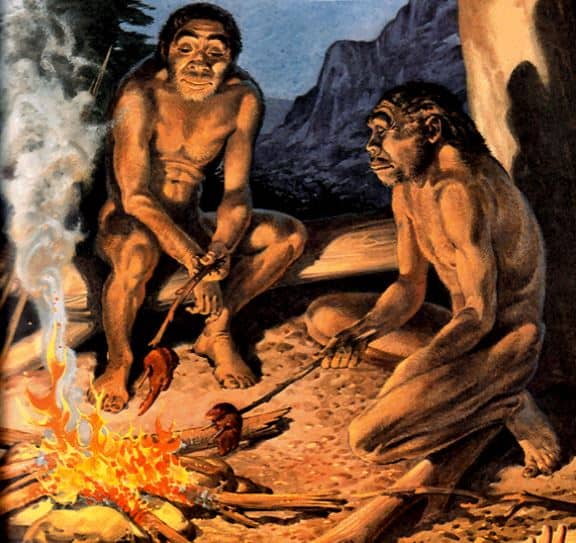Humans started using fire regularly about 350,000 years ago, suggests a team of researchers from the University of Haifa, Israel, who examined artifacts at the Tabun Cave, one of the Human Evolution sites at Mount Carmel.
The mastering of fire was a major milestone in human evolution. However, pinning down when it started is extremely difficult, because various lines of evidence point to different periods.
If, as the latest study suggest, we started mastering fire 350,000 years ago, it may suffice to explain how our culture and behavior developed, but not our large brains or our expansion into the colder regions of Earth.
The Tabun Cave, located about 24 kilometers south of Haifa, in northern Israel, was proclaimed as having universal value by UNESCO in 2012. It provides us with a time-lapse video of human history dating back 500,000 years.
ScienceMag quoted Ron Shimelmitz, an archeologist at the University of Haifa and co-author of the study, who said:
“Tabun Cave is unique in that it’s a site with a very long sequence. We could examine step by step how the use of fire changed in the cave.”
Experts disagree about when ancestral humans started mastering fire.
The team examined relics that had already been excavated from the cave, which were mostly flint tools used for scraping and cutting, as well as flint debris created when they were made. They looked at flints in the lowermost 16 meters of the cave deposits to determine when fire was regularly used.
Nearly none of the flints were burned in layers older than about 350,000 years. However, in every single layer after that period they detected signs of exposure to fire. Wildfires rarely occur inside caves, so they were likely to have been controlled by humans, the researchers believe.
The increase in the frequency of burnt flints points to when our ancestors learned to control fire, the authors wrote. They either kindled it or kept fires going continuously outside.
Mastering fire spread rapidly
According to evidence from other sites combined with the detailed record from the Tabun Cave, ancestral humans probably learned to manipulate fire virtually simultaneously throughout the eastern Mediterranean, Shimelmitz believes.
Before 350,000 years ago, ancestral humans probably used fire if they came across it, but as there is no evidence of artifacts exposed to burning, they probably did not use it routinely.
Humans expanded into cold climates hundreds of thousands of years before fire was mastered, evidence suggests.
Experts have disagreed for years regarding when humans first mastered fire. Richard Wrangham of Harvard University believes this happened earlier than 350,000 years ago, while others think it happened more recently.
Whether this latest study might settle some of the disputes remains to be seen.
In an Abstract in Journal of Human Evolution, the authors concluded:
“While hominins may have used fire occasionally, perhaps opportunistically, for some million years, we argue here that it only became a consistent element in behavioral adaptations during the second part of the Middle Pleistocene.”
Citation:
“‘Fire at will’: The emergence of habitual fire use 350,000 years ago,” Ron Shimelmitza, Steven L. Kuhnb, Arthur J. Jelinekb, Avraham Ronena, Amy E. Clarkb, and Mina Weinstein-Evrona. Journal of Human Evolution, Volume 77, December 2014, Pages 196–203. doi:10.1016/j.jhevol.2014.07.005


